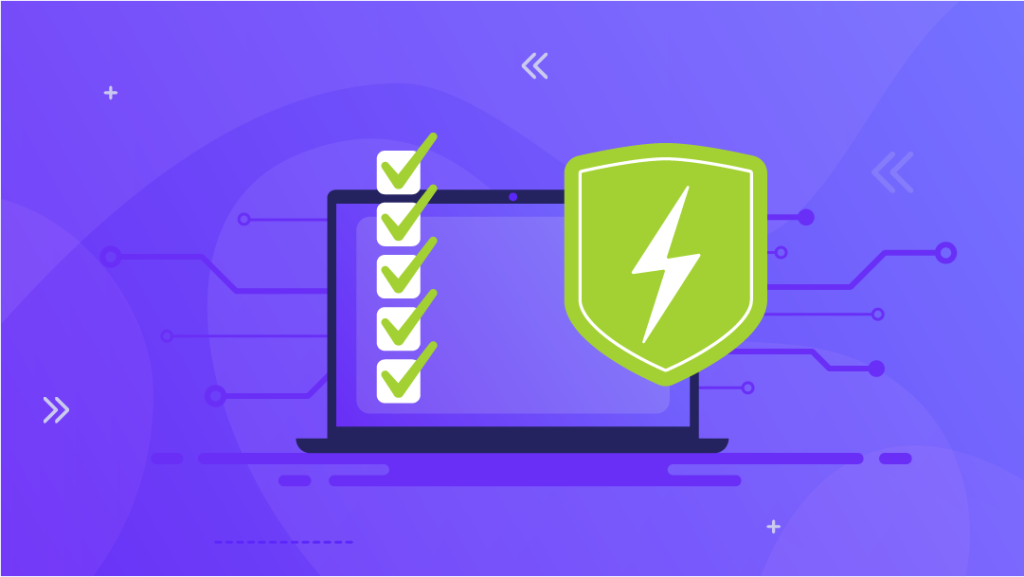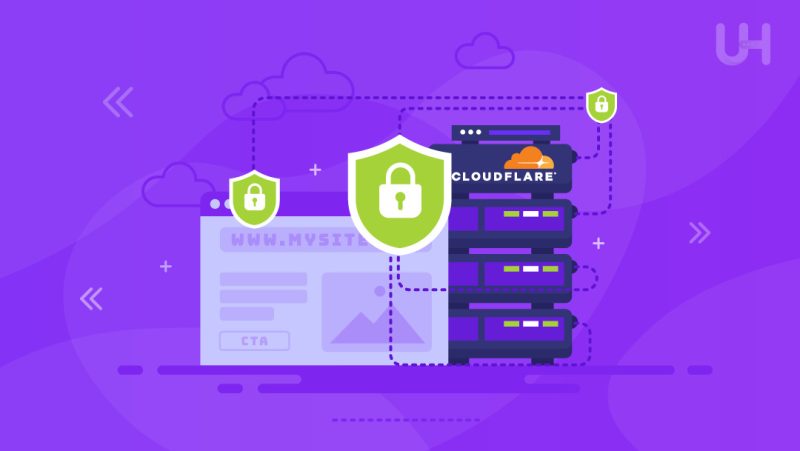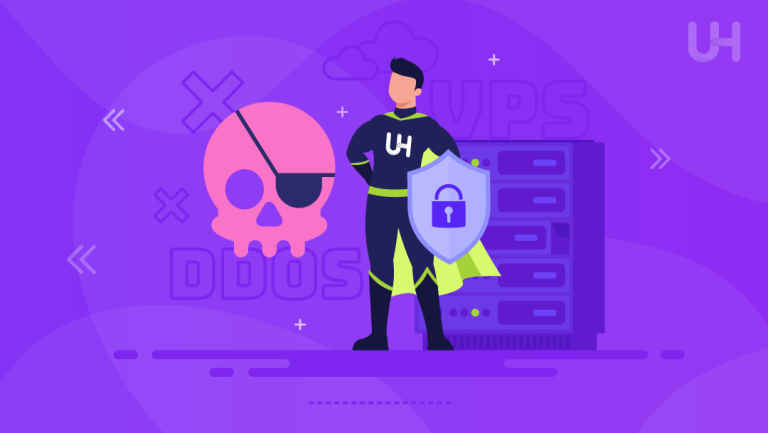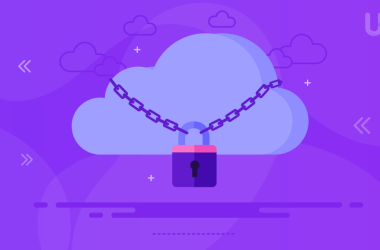Websites have replaced business cards and storefronts for both individuals and businesses. That’s why it is crucial to secure your website because of this growing digital visibility. Websites are regularly threatened by a wide range of dangers, including DDoS attacks, automated bots, and criminal hackers. Therefore, you need strong security measures to secure your website with Cloudflare VPS Hosting.
Keeping all this in mind, we will explore Cloudflare and VPS (Virtual Private Server) hosting, a potent duo that will take your website’s security to the next level.
Understanding Website Security
Information has become the most precious resource in our day, and fraudsters are constantly looking for weak points to attack. Therefore, it’s important to understand the importance of website security before getting into the technical intricacies. Let’s quickly go over the dangers and threats that websites encounter every day.
Risks and Threats to Websites
- DDoS (Distributed Denial of Service) assaults: DDoS (Distributed Denial of Service) attacks flood websites with traffic, making them unreachable to actual users.
- Viruses and malware: These types of programs can infect your website, compromise data, and possibly spread to users’ devices.
- Data breaches: Unauthorized access to sensitive data can have a negative impact on a company’s reputation and legal repercussions.
Importance of Proactive Security Measures
A security breach can be expensive in terms of monetary losses as well as reputational harm. Additionally, it is crucial to take preventative measures to secure websites. Fortunately, there are techniques and technologies out there that can assist you in reducing these dangers.
Cloudflare: An Overview
Cloudflare, a complete web security and performance solution, is one such technology. Let’s examine Cloudflare’s contributions in more detail.
A well-known cloud-based platform called Cloudflare offers a variety of services to improve the speed and security of websites. Whether you’re in charge of a large e-commerce site or a personal blog, Cloudflare is a flexible tool made to safeguard your web assets and improve their delivery.
Key Features and Benefits
1. Content Delivery Network (CDN)
A CDN is a collection of servers dispersed throughout the world. The CDN from Cloudflare makes sure that users receive content from the closest server, resulting in quicker page loads.
2. DDoS Protection
Even the largest and most sophisticated attacks can be mitigated by Cloudflare’s DDoS protection features, preserving the accessibility of your website.
3. Web Application Firewall (WAF)
Your website is protected from typical web application vulnerabilities like SQL injection and Cross-Site Scripting (XSS) assaults by Cloudflare’s Web Application Firewall.
Pricing and Plans
With a variety of price options, including a free tier, Cloudflare is affordable for websites of all sizes. Additional features and functionalities are unlocked by the premium plans, which are especially helpful for companies with demanding traffic and security needs.
Take the First Step Towards Fortifying Your Website’s Security
Securing your website with Cloudflare and VPS hosting is within your reach. Don’t leave your online fortress vulnerable to the ever-evolving threats of the digital world. Start implementing the comprehensive strategies outlined, and you’ll be well on your way to a safer, faster, and more resilient online presence.
VPS Hosting: An Overview
After learning more about Cloudflare, let’s examine VPS hosting and why it complements Cloudflare’s security capabilities so well.
Hosting for virtual private servers is referred to as VPS hosting. It is a type of hosting that falls somewhere between shared hosting and dedicated hosting. Your website is hosted on a virtual server in a VPS environment, which has various benefits.
Advantages of VPS Hosting
1. Isolation and Security
On the same physical server, each VPS runs separately from the others. This isolation improves security by preventing problems on one VPS from affecting others.
2. Customization and Control
You may install unique software, customize your server environment, and have more control over server settings with VPS hosting.
Combining Cloudflare and VPS Hosting
The synergy between Cloudflare and VPS hosting is potent. You can create a formidable defense system for your website by integrating the two.
Setting Up Cloudflare with VPS Hosting
1. DNS Configuration
To begin, you must set up your domain’s DNS settings so that traffic is routed through Cloudflare’s network. The setup instructions for Cloudflare are clear and concise and cover this procedure.
2. SSL/TLS Encryption
Free SSL certificates from Cloudflare provide secure connections between your website and its users. Therefore, for the protection of data in transit, encryption is essential.
Benefits of Combining These Services
1. Improved Website Performance
Cloudflare’s CDN accelerates the delivery of content. Also, the optimal server performance is guaranteed by VPS hosting. Together, they produce quicker page loads and an improved user experience.
2. Enhanced Security
Multiple levels of defense against online threats are created by combining the security capabilities of VPS hosting with Cloudflare’s DDoS mitigation and Web Application Firewall.
Configuring Cloudflare for Website Security
Once you’ve set up Cloudflare and VPS hosting, it’s essential to fine-tune your Cloudflare settings for optimal website security.
Enabling DDoS Protection
Using Cloudflare’s DDoS protection settings can protect your website from erroneous traffic spikes. Moreover, DDoS assaults can be instantly detected and mitigated thanks to this functionality.
Configuring Web Application Firewall (WAF) Rules
You can implement unique security rules using Cloudflare’s WAF to defend against particular attacks. Common regulations include preventing XSS attacks and thwarting efforts at SQL injection.
Monitoring and Managing Security Settings
Regularly monitor your security settings in Cloudflare’s dashboard. Moreover, ensure that the firewall rules are up to date, and set up alerts to notify you of any security incidents.
Securing Your VPS Hosting

While Cloudflare takes care of your website’s perimeter security, you must also secure the VPS hosting environment.
VPS Server Hardening
- SSH Key Authentication: Disable password-based SSH authentication and mandate SSH key access instead of SSH key authentication. Consequently, it will increase security by another level.
- Regular Software Updates: Update the software and operating system on your server frequently to fix security holes.
- Firewall Configuration: Set up a strong firewall to prevent unauthorized intrusion and limit unneeded network access.
Implementing Strong Passwords and Access Controls
Limit user access to your VPS and impose tight password requirements. Create secure, one-of-a-kind passwords for each user account.
Backups and Disaster Recovery
Make sure your VPS is regularly backed up, and create a disaster recovery strategy. This guarantees that in the event of data loss or a security compromise, your website may be promptly recovered.
Protecting Against Common Website Attacks
In addition to general security measures, protecting against specific website attacks is essential.
Preventing SQL Injection
Sanitize user inputs and routinely check your website’s code for any SQL injection vulnerabilities to thwart such assaults.
Mitigating Cross-Site Scripting (XSS) Attacks
To stop XSS vulnerabilities from allowing malicious scripts to run on your website, use security libraries and procedures.
Defending Against Brute Force Attacks
To prevent brute force login attempts, implement account lockout policies and deploy intrusion detection systems.
Monitoring and Incident Response
You must be ready for security situations because no security system is foolproof.
Setting Up Website Monitoring
Use monitoring tools to keep an eye on the functionality and safety of your website. This can aid in the early detection of anomalies and potential problems.
Identifying Security Incidents
First of all, learn to recognize signs of a security breach. Such as unusual traffic patterns, unauthorized access, or suspicious file changes.
Responding to Security Breaches
It is important to have a well-defined incident response plan in place to minimize the damage. Also, to recover your website swiftly in case of a security breach.
Best Practices for Ongoing Security
Website security is not a one-time effort; it’s an ongoing commitment.
- Plan frequent security inspections to find and fix issues. Moreover, perform penetration testing to identify weak points and address them.
- Hackers often enter websites through outdated plugins and software. Therefore, make sure everything on your website is updated often.
- Inform your staff or users about best practices for security. Because human mistakes significantly influence security events.
Conclusion
Website security is a complex task that demands ongoing attention. You may dramatically improve your website’s defenses against a variety of threats by combining the advantages of Cloudflare and VPS hosting. Keep in mind that as the digital world changes, so do the hazards it poses. Therefore, to secure your online presence, stay knowledgeable, be on the lookout for threats, and make significant security investments. The credibility of your website and the confidence of your users depend on it.
As you embark on this journey, consider Ultahost’s VPS hosting services as a reliable partner in your quest for a safer, faster, and more resilient online experience. Our expertise and support can complement the knowledge you’ve gained from this guide, ensuring your website remains a secure and high-performing digital asset.
FAQ’s
Yes, Cloudflare provides robust security features to protect e-commerce sites. With proper configuration, you can secure customer data, including payment information, through features like SSL encryption, WAF, and DDoS protection.
Cloudflare’s services, such as improved page load times and SSL encryption, can positively impact SEO. Google considers website speed and security as ranking factors. By enhancing these aspects, Cloudflare can indirectly improve your website’s search engine rankings.
Cloudflare provides performance analytics, including page load times and server response times, in their dashboard. You can also integrate third-party tools like Google PageSpeed Insights or GTmetrix to measure performance improvements more comprehensively.
Cloudflare has a strong track record of uptime, but no service is entirely immune to occasional disruptions. In case of downtime or network issues, your website’s visitors might experience latency or errors. It’s essential to monitor your website’s performance and have backup plans in place.










